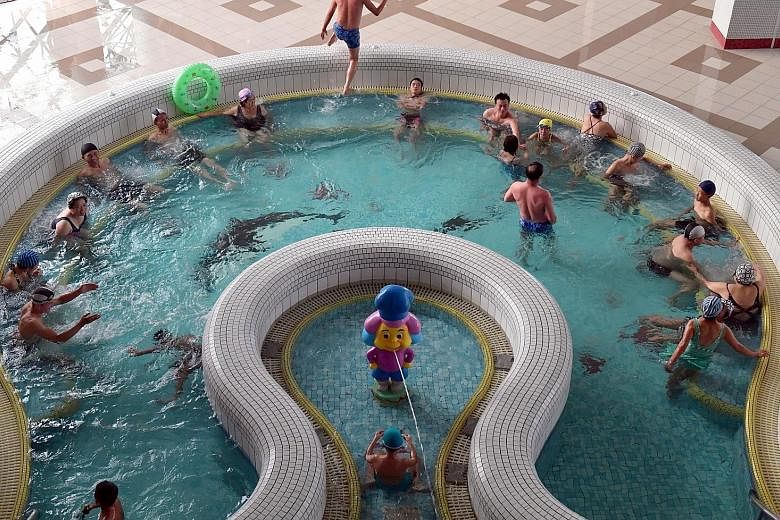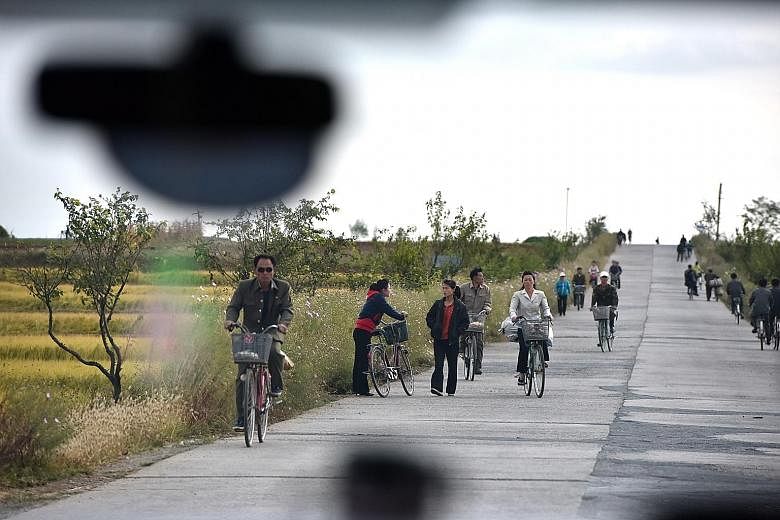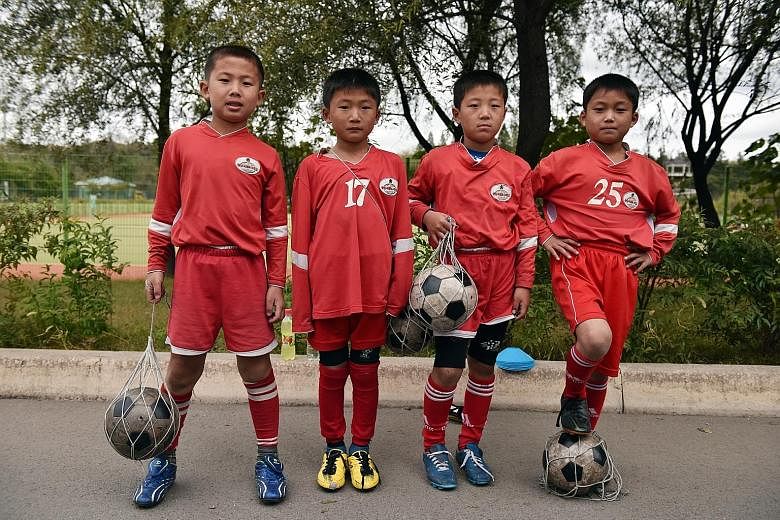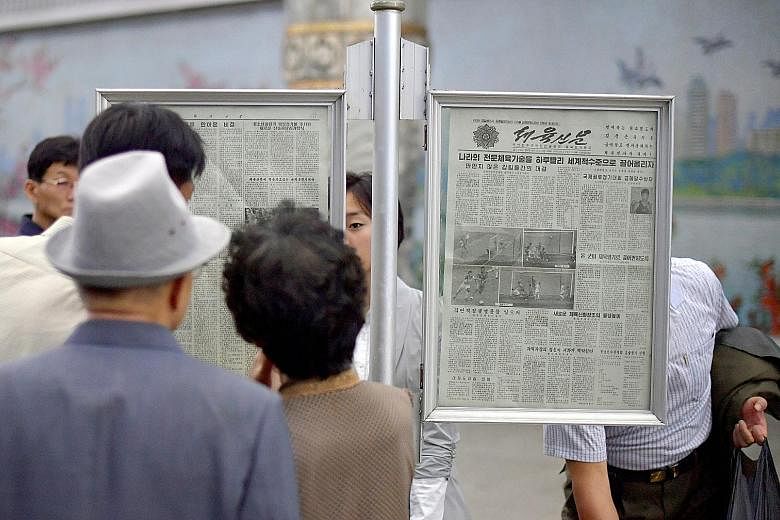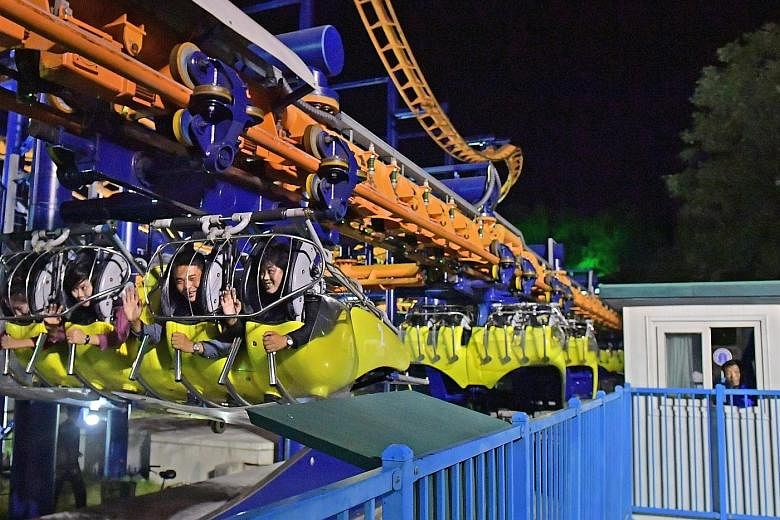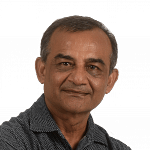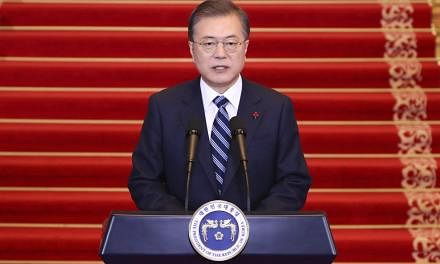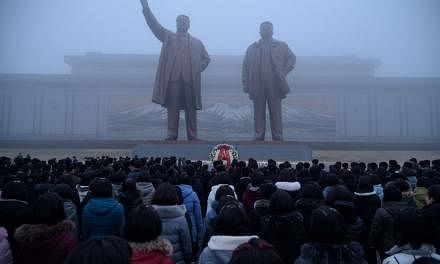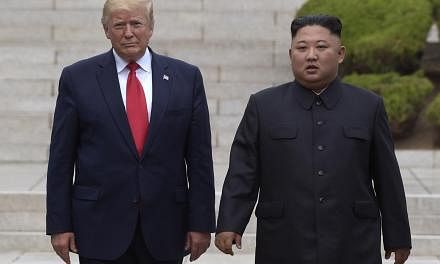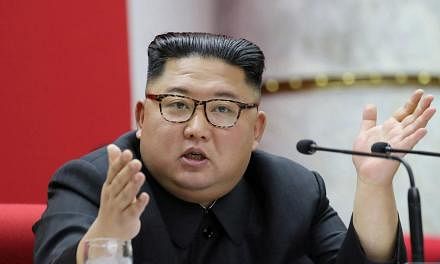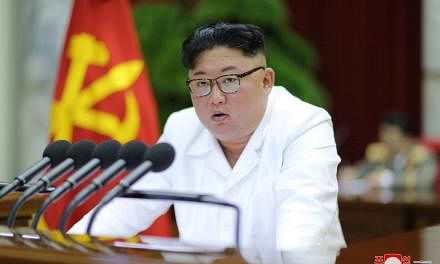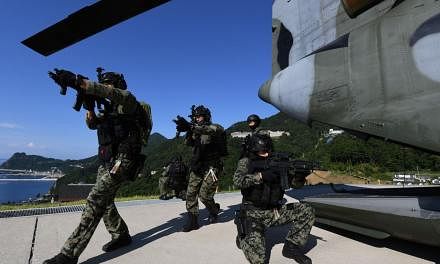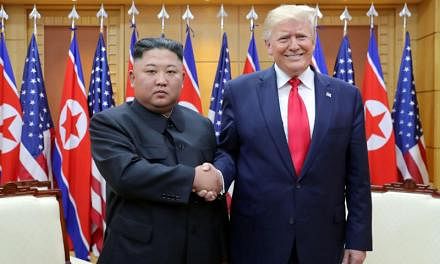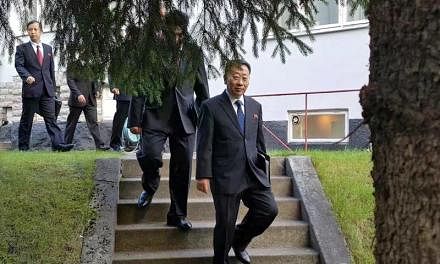October 2017. We are heading for Pyongyang. Minutes after the staid but serviceable Tupolev-204 takes off from Beijing, the air-conditioning is turned down and passengers start to fan themselves. Then you are given the Customs form and really start to sweat. It asks you to declare every book, equipment and piece of clothing in your luggage.
The Customs official is not interested in your clothing. She examines your books. Then she starts browsing through every picture and video clip on your phone. You curse the unsolicited jokes and images stored on WhatsApp and wonder if your phone is clean enough. It is. "Welcome to Pyongyang," you are told after 25 minutes.
No one checks you on your way back, suggesting that the North Koreans do not care what you take out of their country. They worry if you smuggle propaganda in.
Messaging is key. Inside Pyongyang, you cannot plug into the Internet and the only voice you hear is the voice of the state. Young people - like those everywhere - stare at their phones, accessing a sanitised Intranet. Pamphlets with messages are pinned at metro stations.
The main message is self-reliance. At a schoolbag factory, we are told that all equipment has been produced domestically. Then we spot the workers using Singer sewing machines. When we ask the supervisor about this, she says: "If we can produce ICBMs, we can make sewing machines."
Each schoolbag costs between US$4 (S$5.30) and US$6.
The US dollar, the euro and the Chinese yuan are the main currencies that a foreigner can use in North Korea. Officially, the US dollar exchanges for 900 Korean people's won (KPW), but that is deceptive. At Kwangbok Area Shopping Centre - where privileged locals shop alongside foreigners - you can exchange a US dollar for 8,000 KPW at a state-run moneychanger.
Cup noodles sell for 50 US cents, honey for US$4. You can pick up an e-bike for US$350. The most popular item appears to be Chivas Regal, which retails for US$36.
THE men smoke freely indoors and enjoy their alcohol. Soju, or rice wine, with 25 per cent alcohol content, is their poison of choice.
The women are more likely to serve than sip, and they avoid smoking. "It would be impossible for a woman to find a husband if she smokes," a woman tells us.
Over lunch one day, a waitress pours the wine into our cups and a male diner elaborates: "The pitcher has a long, thin neck, so she can be by our side longer." Then he lights up a stick from a brand of cigarettes called 727 - named after July 27, the day the Korean War ended in 1953. In their take on history, the North Koreans call it Victory Day.
Your version of history depends on the country where you study it. North Koreans lionise the Koryo kingdom (918-1392) for unifying the peninsula and have named their airline Air Koryo after it.
Why not Shilla (after whom the South Koreans have named their duty-free line), the empire which is supposed to have done the same in 668? "That is because they were backed by a foreigner (the Chinese Tang dynasty) and were mere flunkies," replies an official, in heavy reference to the current ties between South Korea and the United States.
Foreigners are sometimes put to the test at a Pyongyang amusement park. On learning that this reporter is from Singapore, its supervisor challenges him to take a ride on a drop tower. "Otherwise, we will conclude that the people of Singapore have no courage," she says.
I hand over my phone and wallet to a colleague, try to muster up faith in North Korean technology and zoom up 54m. There, the device starts to moan and creak. It seems ready to collapse. People around me scream. We did not know then that creaking is part of the orchestrated thrill.
When we finally plummet to the ground, I ask the supervisor if she, personally, finds the ride enjoyable. "I would never take it," she says. "I am only a woman."
